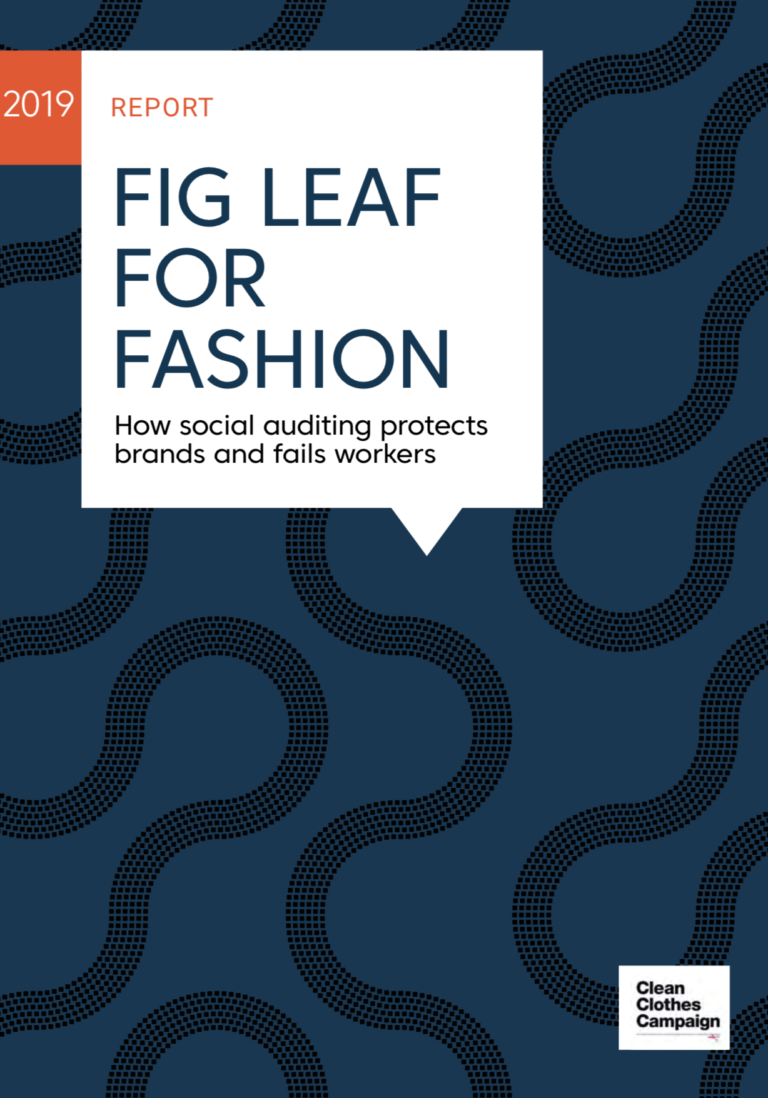This September 2019 report offers an extensive analysis of the corporate controlled audit industry, connecting the dots between the most well known business-driven social compliance initiatives, such as Social Accountability International, WRAP, the FLA, and amfori BSCI, and the largest corporate-controlled auditing firms, including Bureau Veritas, TÜV Rheinland, UL, RINA, and ELEVATE, as well as the brand interests that they serve. Evidence presented throughout the report clearly shows how the social audit industry has failed spectacularly in its proffered mission of protecting workers’ safety and improving working conditions. Instead, it has protected the image and reputation of brands and their business models, while standing in the way of more effective models that include mandatory transparency and binding commitments to remediation.

